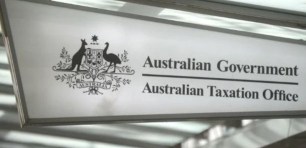
Senator Deborah O’Neill is chairing the Inquiry into Corporate Insolvency in Australia. (AAP Image/Lukas Coch)
The primacy of the Australian Taxation Office (ATO) as Australia’s biggest creditor when it comes to corporate insolvencies is being put under fresh scrutiny, as the Albanese government puts the spotlight on reforming mechanisms for winding up failed businesses.
The Parliamentary Joint Committee on Corporations and Financial Services kicks off its Inquiry into Corporate Insolvency in Australia as the government and corporate sectors look to limit the fallout from businesses collapsing.
Chaired by Senator Deb O’Neill, the insolvency inquiry comes against a darkening economic backdrop of rising interest rates, ballooning energy costs and galloping inflation that is now hitting businesses that survived COVID-19 on fiscal life support from JobKeeper as well as deferred bills from landlords, utilities and the ATO.
The ATO features prominently in businesses going out of business, with the tax office a creditor in 74% of company insolvencies, often as the largest creditor and sometimes as the only creditor.
“92% of unsecured creditors get 0% returns in the event of a business collapse and 13/14 closing businesses are letting themselves be deregistered rather than formally shutting down,” O’Neill told The Mandarin.
“This is hardly a vote of confidence in the current insolvency regime. Our insolvency system is an historical artefact that has been subject to much ‘tinkering’, according to witnesses.”
O’Neill says there is now an expectation that corporate and personal insolvency is on the rise, with the committee chair saying there are concerns that unscrupulous pre-insolvency practitioners (deregistered practitioners) are exploiting people who have been directed to consider or seek insolvency advice.
“Evidence received today in Canberra considered the high cost of insolvency, market failure where insolvency practitioners subsidise assetless insolvencies by overcharging other entities estimated at $43 million (2013), and the relationship between the ATO’s use of director penalty notices that trigger insolvency action — regardless of capacity of the entities to pay for insolvency services,” O’Neill said.
The submission from the Australian Small and Family Business Ombudsman, Bruce Billson to the inquiry paints a difficult picture.
“With the resumption of Australian Taxation Office debt collection, compounded with inflation and interest rate rises, stretched global supply chains, rising costs of materials and energy, and labour shortages, corporate insolvencies have started to return to pre-pandemic levels,” Billson said.
“Insolvency levels in the construction sector are returning to pre-pandemic levels the quickest of all sectors, accounting for 26% of total corporate insolvencies in 2021-22. In the September quarter of 2022, 605 construction firms entered external administration or appointments, up from 445 in the June quarter, and 271 in the March quarter.”
Billson says this was “a record high” in the current Australian Securities and Investments Commission insolvency statistics time series.
Shopping centre landlords, represented by the Shopping Centre Council of Australia, are worried potential changes to insolvency laws will hit them hard.
“The SCCA supports corporate insolvency laws that assist businesses by providing simplified and streamlined processes to either attempt debt restructuring for business continuity via administration or small business restructuring, or enter into liquidation as circumstances require. This framework should be fair and equitable for creditors and not able to be ‘gamed’ or manipulated” the landlord’s lobby group wrote.
“Retail landlords have extended considerable support to tenants (for instance, $3 billion in rental relief under the ‘National Code of Conduct for Commercial Tenancies — Leasing Principles’ (Code of Conduct), and other measures/concessions) that is separate to formal insolvency processes, which is not often understood or is overlooked.
The SCCA claims the system was “routinely gamed by tenants and obfuscated ensuing insolvencies”.
“The Code of Conduct was conceived by our sector to hibernate businesses during government-imposed lockdowns only. However, it was continuously hijacked with no consultation, no considered or transparent analysis, no regard for our industry, and often for political expediency.”
The SCCA said “an entitlement mentality across retailer and small business groups” had been created that expected subsidies from landlords.
This article was first published by The Mandarin.
Handpicked for you

Online furniture retailer Brosa collapses into voluntary administration



COMMENTS
SmartCompany is committed to hosting lively discussions. Help us keep the conversation useful, interesting and welcoming. We aim to publish comments quickly in the interest of promoting robust conversation, but we’re a small team and we deploy filters to protect against legal risk. Occasionally your comment may be held up while it is being reviewed, but we’re working as fast as we can to keep the conversation rolling.
The SmartCompany comment section is members-only content. Please subscribe to leave a comment.
The SmartCompany comment section is members-only content. Please login to leave a comment.